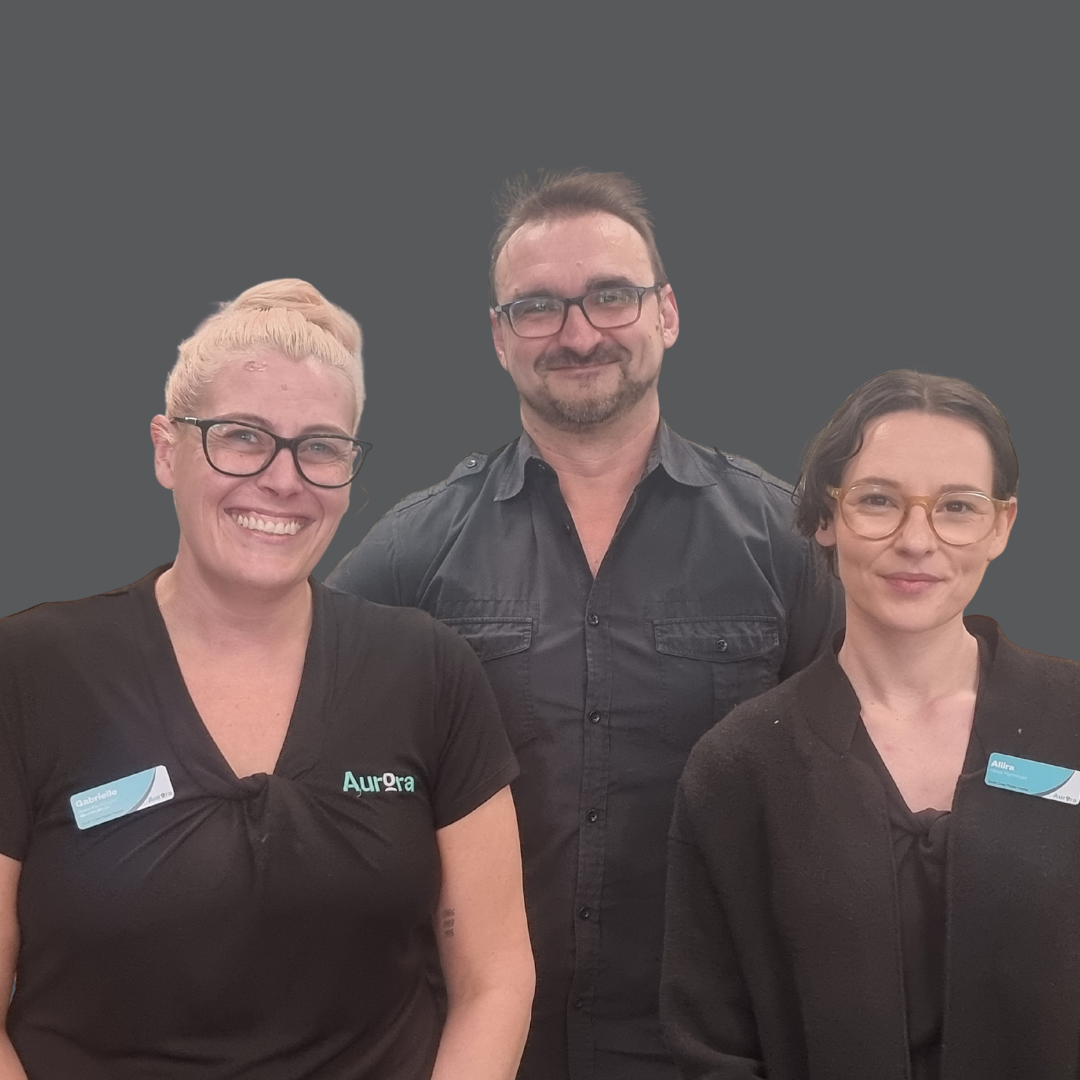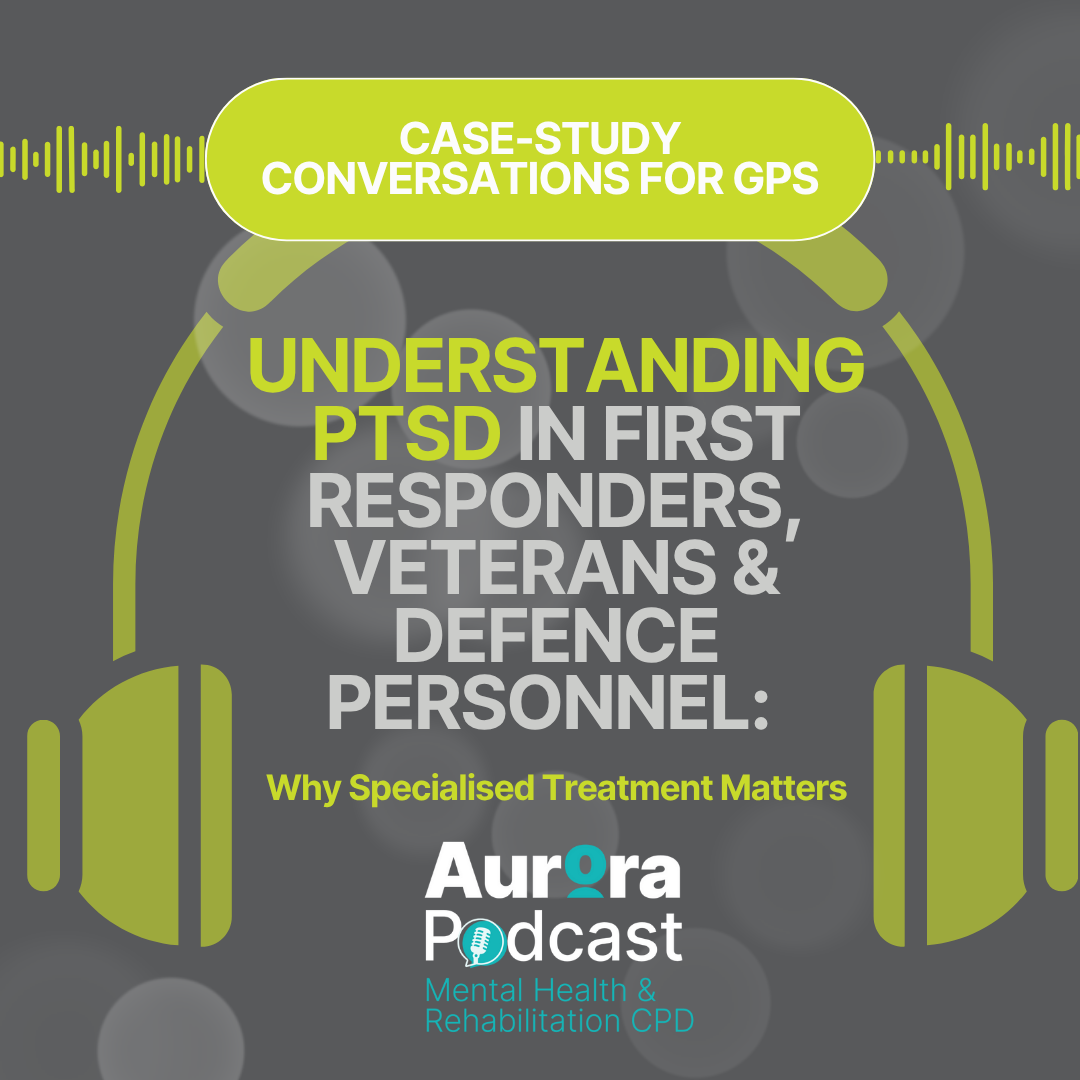Aurora Podcast - Episode 6
Understanding PTSD in First Responders, Veterans & Defence Personnel: Why Specialised Treatment Matters
About this episode
In this episode of the podcast, host and clinical psychologist Gabrielle Sivertsen is joined by psychiatrist Dr Al Griskaitis, Director of Trauma Services at South Coast Private, and clinical psychologist Alira Watts, Trauma Programs Coordinator at South Coast Private Hospital. Together, they discuss the profound impact and unique challenges of PTSD on first responders, veterans and current serving defence personnel. They explore the symptoms of PTSD, and the specialised treatment programs available. The conversation highlights the importance of understanding the identity struggles of first responders, veterans and defence personnel, the path to seeking help, and the various therapeutic approaches, including EMDR and alternative therapies. They highlight the crucial role of General Practitioners (GPs) in identifying symptoms and facilitating early intervention. The conversation also emphasises the benefits of a hospital stay, where structured programs and a supportive environment can significantly aid recovery.
Learning Objectives
Recognise the clinical presentation of PTSD in first responders
- Identify common symptoms such as hypervigilance, emotional fatigue, intrusive memories, and avoidance behaviours.
- Understand the impact of occupational trauma and delayed help-seeking on long-term mental health.
Understand the unique challenges faced by first responders in accessing care
- Explore cultural and psychological barriers to treatment, including stigma, identity conflict, and stoicism.
- Appreciate the role of family and workplace dynamics in early detection and referral.
Improve referral pathways and initial management strategies
- Learn how to initiate appropriate referrals to trauma-informed services, including inpatient and outpatient programs.
- Understand the role of medications such as propranolol and SSRIs in managing hyperarousal and irritability.
Evaluate evidence-based psychological interventions for PTSD
- Gain insight into trauma-focused therapies including EMDR, imaginal exposure, schema therapy, and ACT.
- Understand the importance of matching patients with trauma-informed psychologists and the benefits of telehealth options.
Support recovery through holistic and multidisciplinary care
- Recognise the value of body-based therapies, art and music therapy, and structured hospital environments in trauma recovery.
Presented by
- Dr Al Griskaitis, Psychiatrist, Director of Trauma Services at South Coast Private BSc (Hons), MBBS (Sydney), FRANZCP
- Alira Watts, Clinical Psychologist BPsy
- Gabrielle Sivertsen, Clinical Psychologist BPsy

Specialised PTSD Support at South Coast Private and Kellyville Private Hospitals
South Coast Private Hospital and Kellyville Private Hospital offer dedicated, trauma-informed care for individuals experiencing PTSD, with tailored programs for first responders, veterans, and serving defence personnel.
At South Coast Private Hospital, patients benefit from structured inpatient and day programs that incorporate evidence-based therapies such as Cognitive Behavioural Therapy (CBT), Eye Movement Desensitisation and Reprocessing (EMDR), and other trauma-focused approaches. The clinical team understands the unique identity and psychological challenges faced by those in high-risk service roles, providing a safe and supportive environment for recovery. Collaboration with GPs ensures early intervention and continuity of care.
Kellyville Private Hospital delivers its specialised PTSD program through The Base, a dedicated trauma recovery unit designed specifically for first responders and defence personnel. The program includes trauma-focused psychological therapy, psychoeducation, and peer-supported group sessions, all facilitated by clinicians experienced in service-related trauma. The Base offers a confidential, structured, and culturally sensitive environment where individuals can begin their healing journey among peers who understand their experiences.
Together, these hospitals form part of Aurora Healthcare’s commitment to delivering high-quality mental health care tailored to the needs of those who serve and protect.
Disclaimer
The content shared in this podcast is for general informational and educational purposes only. It is not intended as medical advice, diagnosis, or treatment. Always consult a qualified health professional regarding any medical or mental health concerns.
While we aim to provide accurate and up-to-date information, healthcare is complex and constantly evolving. What we discuss may not apply to your individual circumstances, and Aurora Healthcare does not endorse any specific treatments, clinicians, or products mentioned.
By listening to this podcast, you acknowledge that Aurora Healthcare is not responsible for any decisions made based on the information provided.
